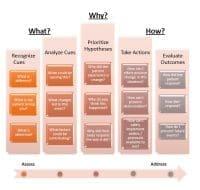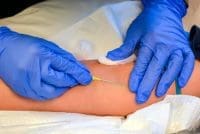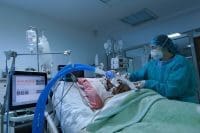Boston, MA (March 21, 2017) – The American Academy of Nursing announced five new Choosing Wisely® recommendations today concerning often routine treatment approaches that may not always be necessary or even in the best interest of patients. The American Association of Neuroscience Nurses (AANN), represented on the Academy’s Choosing Wisely® Task Force, identified the new recommendations, which pertain to patients being treated for nervous system and/or brain conditions.
“These five statements submitted by the AANN reflect their specialized expertise and commitment to working for the highest standard of care,” said AANN Director of Advanced Practice Professionals Cathy Cartwright, MSN, RN-BC, PCNS, FAAN.
“The Academy applauds AANN for introducing recommendations that will help neuroscience patients and their families start beneficial and critical conversations with their health care providers on the best course of treatment,” said Academy President Bobbie Berkowitz, PhD, RN, NEA-BC, FAAN.
The Academy’s list of “Twenty Things Nurses and Patients Should Question,” includes new items 16-20, which are specifically relevant to patients undergoing neuroscience care, and will aid them and their families in choosing care that is supported by evidence, is not duplicative of other tests or procedures already received, is free from harm, and is truly necessary. The full list may be found at www.aannet.org/choosing-wisely.
The Choosing Wisely®, “Things Nurses and Patients Should Question,” identified by AANN include:
- Don’t routinely order a head CT to assess for shunt failure in children with hydrocephalus.
- Don’t routinely order an EEG on neurologically healthy children who have a simple febrile seizure.
- Don’t administer diazepam for muscle spasm following spine surgery in the elderly.
- Don’t use lumbar puncture (LP) opening pressure as a reliable measure of intracranial pressure inchildren with severe chronic headache.
- Don’t order “formal” swallow evaluation in stroke patients unless they fail their initial swallow screen. Choosing Wisely® is an initiative of the ABIM Foundation and Consumer Reports to encourage conversations between patients and clinicians about what care is genuinely necessary. The Academy was among the first non-physician organizations to release recommendations. It leads the nursing profession’s efforts in the Choosing Wisely® campaign through its task force composed of Academy fellows who are leaders of many national nursing organizations including AANN. The AANN recommendations have been endorsed by the Academy Choosing Wisely® Task Force.To date, the Choosing Wisely® initiative has engaged nearly 100 national and state medical specialty societies, regional health collaboratives and consumer organizations, and has identified nearly 500 tests and treatments that have been described as overused and inappropriate, and should be discussed with patients.
via American Academy of Nursing
Download the complete list of recommendations here


















